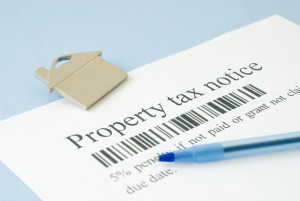Tax Lien Certificates
Tax lien certificates as an investment strategy has seen a surge of popularity for a number of years based on how easily it can be to acquire one, their potential of a high return and their often easy hands-off strategy.
What are Tax Lien Certificates?
When a homeowner fails to pay their property tax, the county can place a certificate of claim against it, known as a lien, and these liens are then taken to auction for investors to buy up. The tax lien certificate is then issued to the investor, and they pay off the property tax, plus any penalties included. Afterwards all the investor has to do is sit back and wait until either one of two outcomes occur: either the homeowner pays off the outstanding fees in a certain amount of time, or the owner fails to pay the back taxes. In the case of the former, the investor then receives a check in the amount they originally paid,plus an interest rate of anywhere between 8 and 30 percent. In the more rare case of the latter, the deed to the property can potentially be handed over to the investor,Free-and-clear.
How do I buy a Tax Lien Certificates?
In-person tax auctions (or tax sales) are the traditional way to acquiring tax lien certificates, however with the advent of the Internet, online auctions are quickly becoming popular as a way to reach a wider pool of investors. Auctions are usually held once a year in each separate county, so doing homework on when a county holds theirs and which ones you’d like to attend is a good idea.
Each state also handles their sales differently, in the event of more than one investor seeking to buy the same lien, and the winner can be determined by one of five methods used:
Bid Down the Interest – Investors can accept a lower bid of return than what the government offers, sometimes going as low as a 0% return. Whoever accepts the lowest rate wins the lien.
Premium – The Investor who agrees to pay the highest above the original lien amount is the winner.
Random Selection – Usually using a computer, a random investor is chosen from the group looking to win the lien.
Rotational Selection – Depending on the numbers the investors are holding, the first lien up for sale will be offered to the lowest number, who can then take it or refuse. If the lien is refused, it is then offered to the next lower number and so on.
Bid Down the Ownership – The investor willing to purchase the lien for the lowest percent of ownership over the property will win. In the event that the taxes are not paid off, whatever the investor agreed to (i.e. 90%) will become theirs while the remaining will still belong to the original owner.
In some states, if a lien is not sold at auction, they can then be bought over the counter (OTC.) This is a good way to avoid competition and to keep tax lien certificates as pure as possible.
What are the Possible Risks?
Know that there are always risks in investments like these, but also know that doing your research and being smart in your decisions can help you avoid many of these risks as well. First off, learn as much as you can about the property you’re bidding on. Often investors bid blind, and end up with a property worth nowhere near the taxes they paid on it.
Remember that some counties and jurisdictions require large deposits at the start of the sale, regardless of the amount of the tax lien certificates you’re looking to buy. And payment of these liens is often due on the spot and in cash, with failure to pay the full amount potentially resulting in being barred from future sales in that county. Also, tax lien certificates are almost worthless until the designated time frame given to the original owner to pay off fees is up. They cannot be traded in for cash, and must be kept until then, or until the fees are repaid by the original owner.
For more Information on How to Profit from Tax Delinquent Properties, check out one of my Free Webinars.
 Subscribe to our podcast
Subscribe to our podcast 

